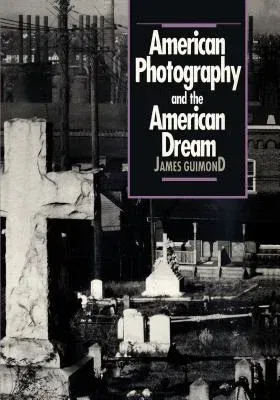James Guimond's powerful study reveals how documentary photographers
have expressed or contested the idea of the American Dream throughout
the twentieth century. In Guimond's formulation issues like growth,
equality, and national identity came under the rubric of the Dream as it
has been used to measure how well the nation is living up to its social
and political ideals.
A pathbreaking book, American Photography and the American Dream
examines the most important photographers and developments in the
documentary genre during this century. It encompasses the reform-era
images of Francis Benjamin Johnston and Lewis Hine; the work of Farm
Security Administration (FSA) photographers like Walker Evans and
Dorothea Lange during both the 1930s and 1940s after the FSA photography
unit broke up; the American-Way-of-Life pictures published by Life,
Look, and the United States Information Agency during the 1940s and
1950s; the iconoclastic images of William Klein, Diane Arbus, and Robert
Frank; and the work of four photographers of the 1970s and 1980s: Bill
Owens, Chauncey Hare, Susan Meiselas, and Michael Williamson.
Guimond pays close attention to the specific historical circumstances in
which the pictures were made, to the roles the photographers played in
making their images, to their intentions, stated and unstated, and to
the original contexts in which the images were published or exhibited.
These images, he shows, are not merely pictures on museum walls but
revelations that can help us understand how we as Americans have seen
ourselves, one another, and the world around us.


